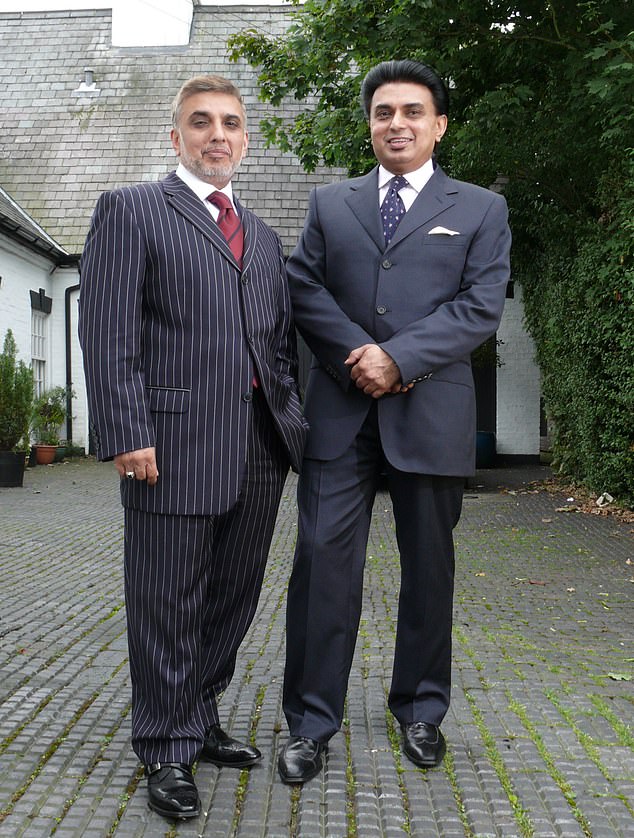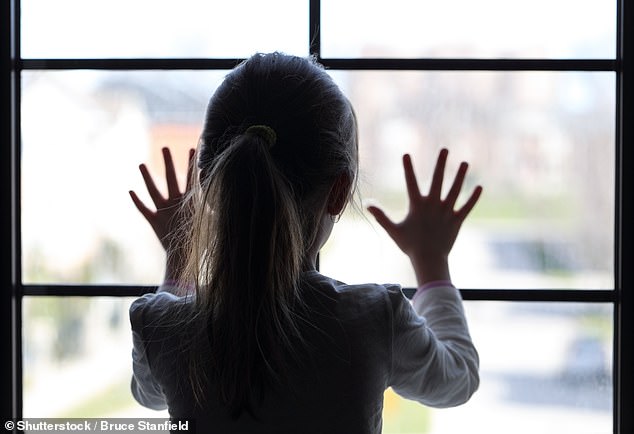Published by The Daily Mail (4th September, 2025)
Nine months ago, Manchester-based investment group Tristone put out a slick video to brag about its ‘year of growth’, delivering what it described as ‘outstanding services’ to society, while seeing revenues rise by something close to a remarkable 50 per cent.
The artfully shot film had a warm, human touch. It showed a young girl silhouetted against a sunset by the sea, sitting on an adult’s shoulders, and explained how the company cared for as many as 247 young people and 111 adults.
For, like many sharp-eyed financial operators, Tristone Group has sniffed out something to its advantage – that vast profits can be made amid the chaos of Britain’s social care crisis.
Today, Tristone has built a portfolio of companies such as Seaside Care Homes and, its latest purchase, Serenity which looks after troubled and disadvantaged children in Hampshire.
Tristone’s founder, Yannis Loucopoulis, says he looks to double earnings from his targeted investments within five years, while promoting Tristone’s self-proclaimed values of compassion and integrity, of course.
It is just a few weeks since Loucopoulis donned a white tuxedo for the group’s annual prize-giving, handing the ‘social value award’ to Tristone-owned Dimensions Care.
So, it is all the more unfortunate that all five of Dimensions Care’s West Midlands homes have been closed after a sickening safeguarding scandal. In one incident, two children went missing overnight. It emerged they had been to nightclubs in Coventry and Birmingham. One spoke of being taken to a hotel by adult men, sexually assaulted and possibly drugged.
Their accounts were among the many harrowing tales told by young people entrusted – at great cost to the taxpayer – to the protection of this company, which promised to ‘change lives, one child at a time’.
The sordid reality was grotesque failure of care, with untrained staff running chaotic homes, where inspectors reported broken door frames and graffiti. At one home, inspectors found no evidence that ‘children even lived there’, with no evidence of ‘toys, games [or] photos of their belongings on display’.
Tristone issued a statement regretting the closures. ‘Sadly for everyone involved, there was a decline in our previous “Good”, Ofsted-graded standards, which should not have happened,’ it said.
But this scandal goes far beyond one company. For it offers an alarming snapshot into how our nation betrays the 83,000 children and young people taken into the arms of the state.
The number of English children in care has soared by more than one-fifth over the past decade. And ballooning costs – which have doubled over this period and can exceed £1 million a year for a single placement – are crippling councils. Last year it was revealed that one in every 45 children in cash-strapped Blackpool was in care.
Yet this vital sector is being ravaged by the pin-striped vultures of private equity, who are making millions for some of the world’s wealthiest people, including celebrities, billionaires and Gulf potentates. Even the world’s richest family – the al-Nahyan dynasty that rules oil-rich Abu Dhabi – has descended on this crisis-ridden corner of Britain’s public services, seeking to boost its £300 billion fortune still further.
Many owners of children’s homes lurk behind opaque corporate structures, sometimes using tax havens, while loading up care firms with costly debts. Most pay their front-line staff a pittance.
‘We are seeing profiteering from children who are being badly failed in a broken care system,’ said Clare Bracey, interim chief executive of Become, a charity helping children in care and those who have recently left care.
‘Now fostering is on the same trajectory,’ she said. ‘There is desperate shortage of appropriate homes, so companies exploit the system to charge eye-watering costs and make huge profits.’
Bracey is right about obscene profiteering – as I found for myself ploughing through financial accounts for the 20 biggest companies in childcare and fostering.
The country’s largest provider of children’s homes is CareTech, set up in 1993 by brothers Farouq and Haroon Sheikh with a single adult unit in Luton before moving into children’s services 15 years ago.
Valued at £58 million when it floated in 2005, the pair took the firm private again in a £1.2 billion deal in 2022, underlining the explosive growth of the sector.

CareTech says, ‘We strive to promote equality’, yet the highest paid director of holding company Amalfi Cleanco earned a staggering £1.23 million annual salary package in the year ending September 2024 – up from £1.13 million the previous year.
The latest accounts show turnover – mainly from UK operations – grew to £630.4 million last year, a rise of £55.8 million on the previous year, with gross profits surging by £21 million to £223.2 million.
With a £1 billion mountain of debt – and accounts showing the biggest loan charging 13.08 per cent a year – at least one in every £6 has found its way into the hands of bankers and investors, some based overseas.
Despite the fat profits, regulator Ofsted has found failures and safety concerns at several CareTech homes. One was given a suspension notice earlier this year after whistleblower claims about ‘a bullying culture’ (though the firm says none are currently closed).
This is far from an isolated example. Take National Fostering Group, the country’s biggest agency for fostering. It is owned by a Luxembourg-registered private equity firm run by racehorse-loving Italian financier Stefano Bonfiglio, a former boyfriend of style guru Trinny Woodall.
After their split, Bonfiglio married Carolina Gonzalez-Bunster at a four-day wedding in the Dominican Republic. It featured in Vogue magazine, which recorded details of the 18 flower girls and page boys, days at the beach and a jungle-themed dinner.
National Fostering’s latest accounts show turnover rose slightly to £36.4 million in the year ending August 3, 2024, with pre-tax profits of £26.2 million and post-tax profits of £19.9 million. These are astonishing sums for any commercial enterprise, let alone one involved in social care.
Meanwhile SSCP Spring Topco, National Fostering’s parent company, made gross profits of £68.5 million on a £188.1 million turnover – yet one in every five pounds it earns goes on debt-interest payments.
One director received a bonus of £2.98 million following the sale of a division providing special needs education for children with autism and learning disabilities. This was valued at about $1 billion when flogged to another private equity outfit, which includes Irish rock star Bono among its investors.
Eight of the 12 biggest childcare providers are owned by private equity, a financial model that all too often loads firms with big debts – to fund the initial purchase – before slashing costs in order to sell for a quick profit.
One debt-laden outfit hands £1 in every £3 taken from councils to its banks and investors.
Scotland has pledged to curb exploitation by private operators after a review declared there should be ‘no place for profit’ in children’s care, while Wales plans to do the same. However, in England, private providers run 84 per cent of children’s homes, even as council debts soar to an ‘unsustainable’ £122 billion.
These homes are clustered in cheaper parts of the country, such as the North West. As a result, many children are separated from siblings, friends and home communities.
Historically, children’s social care was delivered by local councils or charities. But many stepped back from providing homes amid a series of abuse scandals, the cutbacks of austerity and the trend for outsourcing in the public sector. So, with demand surging, local authority children’s homes were left at the mercy of private firms.
As the campaigner and foster parent Martin Barrow says, taking children from their families is among the most drastic intervention the state makes ‘yet many people are making substantial sums of money while some deliver often-appalling care’.
‘Every week I see 20 or 30 planning applications, often from people with little or no experience of children’s homes. If these homes flop, they sell them on to another firm. But there are so many children suffering and this corrupts the whole system.’
The regulations are so lax that three years ago, one newspaper found a convicted drug smuggler running a home for vulnerable children in Essex.
Another home in Manchester – run by a minor reality television star and funded by her billionaire porn baron boyfriend – was shut down three months ago amid safeguarding fears.
The al-Nahyan family alighted on the sector four years ago. The Gulf state’s sovereign wealth fund is the ultimate owner of Witherslack – one of the biggest private operators of children’s homes and special schools – alongside stakes in Elon Musk’s Space X, Rihanna’s beauty brand and Manchester City Football Club.

Latest accounts for Witherslack’s parent company show rising earnings – up from £172.8 million to £208 million last year – and soaring profits, which rose from £34.8 million to £44.6 million. The firm also boasted about opening and building several new sites.
Meanwhile, it gave £26 million to banks and set aside £51.5 million in a 12 per cent dividend to shareholders – deferred until any sale of the firm – which included a £39.3 million payment back to the feudal regime’s state-owned investment company.
A recent Ofsted report for one Witherslack school found inadequate management had left pupils at risk of harm. The firm has also faced accusations regarding over-use of restraint, with parents claiming that children were left with ‘terrible’ injuries.
‘The profits they acquire rely entirely on the incuriousness of government and the lack of public outrage. How many more millions of tax-payer funds will be wasted before action is taken?’ asked James Sheils, who says his ten-year-old son was restrained 70 times in his first year at a Witherslack school in Surrey.
Qatar’s sovereign wealth fund has also taken a stake in Britain’s cash-strapped childcare sector through a company based on the Isle of Man, alongside its better-known investments in Harrods and Heathrow Airport.
Three years ago the Competition and Markets Authority exposed how providers exploited scarcity of children’s homes and the resulting weak bargaining position of councils, leading to average profit margins of 23 per cent per year.
The gilded lives of billionaires and sheikhs are a world away from the lives of British children sent into state care, with studies suggesting that almost two-thirds have suffered neglect, half have been physically abused and almost a quarter sexually abused.
But to fully appreciate the shameful scale of regulatory failure with ‘looked after’ children, consider the case of Hesley Group.
It was owned by a private equity group – the French firm Antin Infrastructure Partners – and enjoyed the usual rising turnover and profits despite hefty debts. It claimed to be driven by ‘person-centred’ values. Then staff at three of its homes near Doncaster were accused of ‘systemic and sustained’ abuse against 95 children, many profoundly disabled and unable to speak.
Reports claimed children were punched, kicked in the stomach, locked naked outside and had vinegar poured in wounds.
Documents leaked to the BBC showed that police, the local authority and Ofsted were alerted at least 40 times – yet the residential homes were rated ‘Good’ by the watchdog. Earlier this year, police said there would be no criminal charges after ‘an incredibly complex and sensitive investigation’.
Antin sold Hesley – which now only operates adult services – to a British private equity firm.
So what of the children sent into homes? Ezra, now 20, was placed in care aged nine and told me he was put into 93 different placements over nine years – the longest lasting just nine months – while suffering abuse and bullying.
‘People would be shocked to know what is really happening,’ he said. ‘We are just kids entering the system through no fault of our own. But lots of these homes seem to be doing things for all the wrong reasons.’
The government pledged to tackle such abuses after education secretary Bridget Phillipson admitted too many children felt ‘forgotten, powerless and invisible’. It is giving Ofsted stronger powers to tackle unscrupulous operators and demanding big providers share financial details to challenge profiteering.
Sadly, this is unlikely to make significant difference to this scandalous situation – and it is doubtful the spiralling costs will come down, let alone improve the lives of all those thousands of children taken into the arms of the state.
…and the providers’ responses
CareTech said its current ‘debt position’ was £495m with no borrowing now priced at 13 per cent or above. ‘The children’s services care rating is currently three per cent superior to the national average for Good/Outstanding services,’ said a lawyer speaking for the company.
National Fostering Group said it was ‘incredibly proud’ that all its 31 agencies were rated ‘good’ or ‘outstanding’ by the regulators. ‘Our mission is to provide the highest quality care and create brighter futures for every child and young person we support,’ said chief executive Tim Barclay.
Witherslack said its mission was to give children with complex needs the best possible start in life, insisting that all profits were reinvested into its services, creating an additional 1,000 new school places built to the highest standards.
